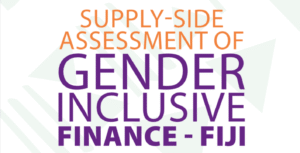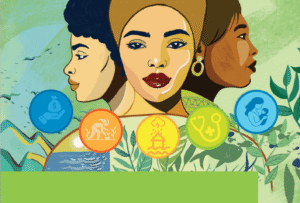

written by
EVIE CHOMCHUEN
Female Founders Raising Capital: Finance is a Friend
Thailand is ranked fourth in Southeast Asia for the best startup ecosystem following Singapore, Malaysia, and Indonesia. And throughout 2021, the country has also seen a significant increase of investment totalling 642.7 billion baht (19.5 billion USD) from the combined value of foreign and local investment pledges – a 59% increase from the previous year.
While a handful of venture capital firms are active in the market, the Thai government has also introduced income tax exemptions for investments in Thai startups through individuals, companies, and cooperate venture capital (CVC) to boost the startup growth. The move to waive tax is expected to drive funding for local startups up to 320 billion baht (9.3 billion USD) by 2026.
As the ecosystem develops, women entrepreneurship is key to boosting economic stability, sustainable development, and innovation. But due to a complex mix of institutional, cultural, and economic factors, many female founders raising capital in Thailand find it challenging as capital flow to female-led businesses remains low.
According to the IFC of the World Bank Group, women own about half of Thailand’s 3.1 million enterprises: micro, small and medium. And about 50% of these roughly 1.5 million women-owned businesses are considered either financially or fully constrained. For the female founders, this means they either cannot access capital or can only do so with limitations.
To better understand the challenges that women entrepreneurs face in accessing capital, Connecting Founders engaged with several female founders who shared their unique journeys raising capital in Thailand.
“Finance is a Friend” – Suthasiny (Moh) Sudprasert, Co-Founder, Happy Grocers

With a mission to reinvent Thailand’s food supply chain, Happy Grocers’ co-founder Moh is setting the business out to be Thailand’s first – joyful – sustainable grocery store that ensures sustainability and improves local communities by making sure farmers are treated fairly and have equal access to the market.
Amid the COVID-19 pandemic in 2020, Moh and her best friend Pearl started Happy Grocers from scratch, in a home garage, with no initial capital. The two did everything themselves from taking orders, preparing packaging, to making deliveries from door to door.
Over time, Happy Grocers upgraded from selling produce online to a mobile grocery truck moving across Bangkok. In March 2022, the business launched its first fundraising aiming for a 5-million-baht investment. And in May of the same year, Moh has made it to the Forbes’ 30 under 30 list for social impact.

Being active on social media and regularly sharing business updates have been instrumental to increasing the company’s visibility and credibility among potential investors, Moh said. Based on that, some investors reached out directly to discuss funding opportunities.
As a young female entrepreneur raising capital, Moh shared that it is an exciting experience and an opportunity to learn and grow. Being young may be perceived as inexperienced, but she sees it as an advantage – so long as young entrepreneurs show willingness to listen, learn, and take criticism with a positive and productive attitude. When you embrace the experience gap and show willingness to learn, Moh explained, there are experienced people out there who are willing to mentor and guide you towards funding. Also, growing the business with a friend who you can share the ups and downs with can make the journey so much more rewarding and less mentally challenging.

One important lesson Moh has learned throughout the journey is that working with financial advisors has been crucial and a ‘life-changing’ experience. Not coming from a financial background, Moh said having access to expert financial planning has benefited Happy Grocers in so many ways and unlocked more potential for growth. With the help of a financial advisor, Moh has learned to carry out effective market research, competition profiling, project prioritization, and budgeting strategies.
The business is growing, and so is Moh.

Read more from the Female Founders Raising Capital series: Passion First, Investor Later





